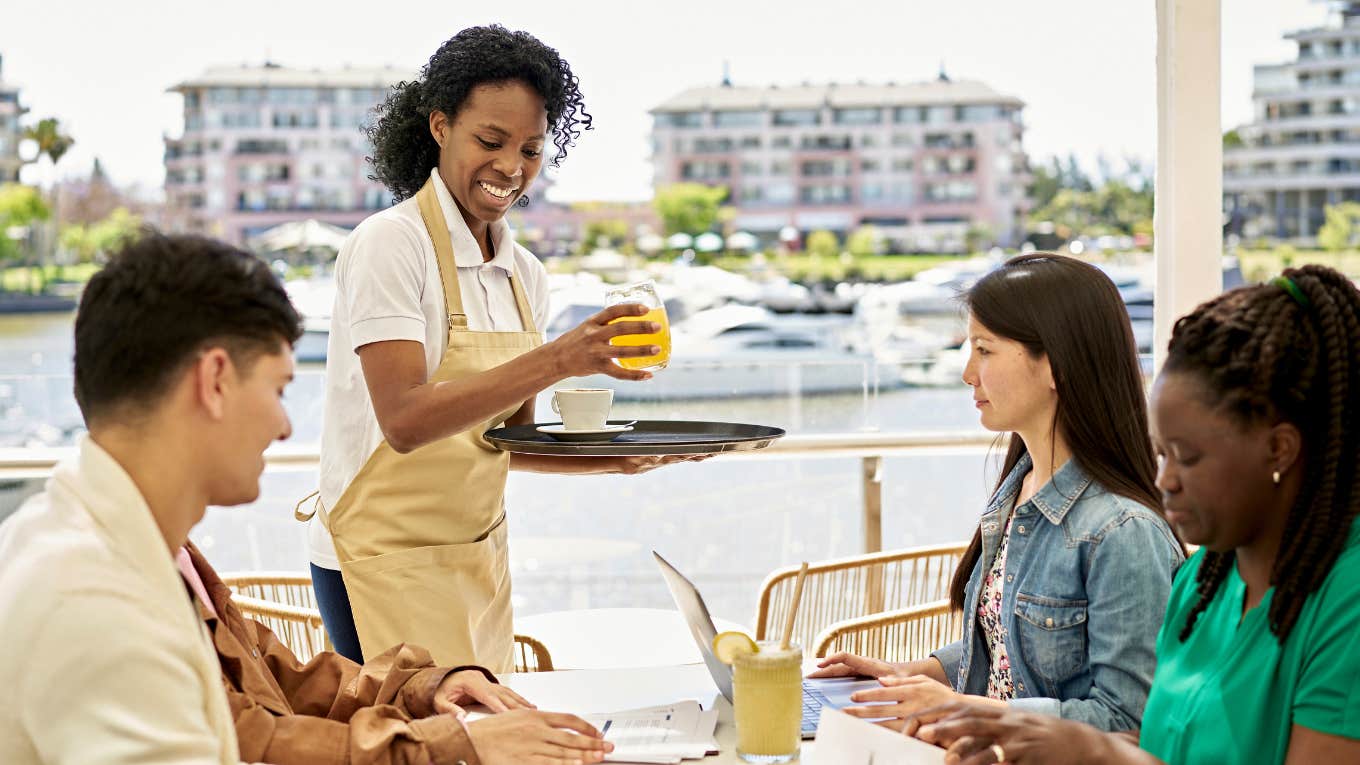Server Explains Why She's Against Earning A 'Livable' Wage As A Restaurant Employee And Prefers Getting Tips
She explained that this opinion comes even after dealing with customers who never leave tips.
 xavierarnau / Canva Pro
xavierarnau / Canva Pro A server has revealed her "hot take" when it comes to tipping culture in restaurants and the argument that employees should be paid a livable wage instead of depending on tips.
In a TikTok video, Stephanie Carlisle, who makes videos on her platform about the drama of working in a restaurant, shared an incident that keeps happening to her at work that led her to voice her thoughts about the tipping system.
She admitted to preferring receiving tips than earning a 'livable' wage as a restaurant server.
"So, the restaurant that I work for has this couple that comes in probably once or twice a month, and they always come in 15 minutes before we close," she began in her video. Carlisle explained that these regulars never leave tips.
She continued, saying that it didn't matter how much or how little they spent on food there or how great the service was, this couple just refused to leave a tip. Instead of being deterred, the servers at the restaurant were told not to let it get to them, and maybe they just needed to build trust with this couple and continue giving them great service.
"This has been going on for a couple of years now, and at this point, 90% of servers refuse to wait on them," she admitted. "There is nothing in the rule books saying that you have to tip anyone whenever you go out to eat. However, that is how the servers are making money."
She insisted that servers typically have to tip out the support staff based on the sales from a table that doesn't tip. That ends up costing money to wait on a table that isn't tipping. Additionally, she pushed back against comments that she predicted she'd get from viewers, saying that she and other servers created the tipping culture, but paying restaurant employees a livable wage would greatly affect the consumer experience.
"I can tell you that if we were to pay them a livable wage, the prices of everything would go up so high, you would probably not be able to afford to eat there anymore," she said. "The standard of service would go so far down, you wouldn't wanna eat there anyway, even if you could afford it."
 Photo: kali9 / Canva Pro
Photo: kali9 / Canva Pro
At the end of the day, the tipping service is the way that it is and the restaurant servers are not responsible for it nor can they fix it, which is why if you are coming into an establishment for a dine-in experience, be prepared to leave a tip once the bill comes.
Servers depend on tips because they earn more from them than what their employers pay them.
According to NPR, while servers make far less than the standard federal minimum wage of $7.25 an hour, restaurants are legally supposed to pay the difference when pay falls short of that amount. However, servers complain many restaurants often skimp on topping off their pay if they don't make enough in tips.
Per the Economic Policy Institute, a large proportion of workers live below the poverty line in states where the tipped minimum wage structure is in place, compared with those living in states where employers must pay the same minimum wage to all hourly workers.
Despite how well-known it is that restaurant servers make the bare minimum, most Americans claim that servers are the ones they tip the most. A survey on tipping practices from Bankrate found that only 65% of survey respondents said they always tipped for table service, with a shocking 5% saying they never tip at all.
Similarly, around one in three (30%) U.S. adults admit to thinking tipping culture has gotten out of control. Older Americans tend to complain about tipping more than younger generations.
Contrary to what most people want to believe, the tipping system is the current reality, and servers should not bear the brunt of people's anger toward it.
Nia Tipton is a Chicago-based entertainment, news, and lifestyle writer whose work delves into modern-day issues and experiences.
